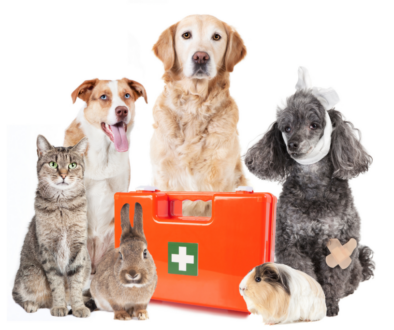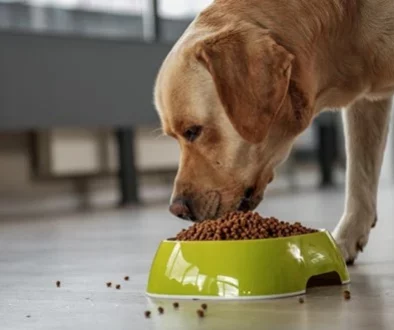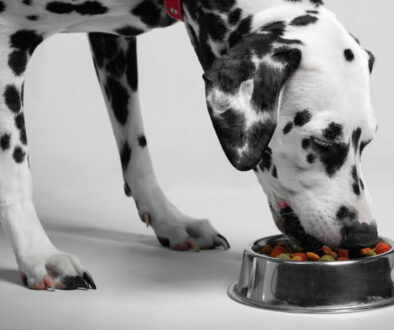Veterinary Care for Horses: Keeping Your Horses Healthy
Welcome to the intriguing world of veterinary care for horses. As horse owners and enthusiasts, we understand the deep bond and responsibility that comes with caring for these graceful creatures. Whether you are a seasoned equestrian or a newcomer to the equine world, the well-being of your horse is undoubtedly a top priority.
Veterinary care plays a vital role in ensuring their health and happiness. In this article, we will explore the essential aspects of veterinary care for horses, from preventive measures to specialized treatments.

Get ready to embark on a journey that will empower you with the knowledge and skills to provide the best possible care for your equine companion. So, let’s dive in and discover the intricacies of veterinary care for horses together.
Preventive Care: The Steed’s Shield against Ailments
Prevention is always better than cure, and the same holds true for our beloved horses. Regular veterinary check-ups and preventive care measures go a long way in keeping the equine athlete in top shape. Here are some key factors to consider:
1. Vaccinations: Shielding against Silent Threats
Vaccines play a vital role in safeguarding your horse against infectious diseases. Regular vaccinations should be administered as per your veterinarian’s guidelines. Some common vaccinations include:
- Tetanus
- Equine Influenza
- Equine Herpesvirus (EHV)
- Rabies
It is important to keep an updated record of vaccinations to ensure timely boosters and prevent the risk of infections.
2. Deworming: Banishing Intestinal Parasites
Horses are susceptible to various internal parasites, such as worms, which can compromise their health significantly. Regular deworming schedules, under veterinary guidance, will help keep these parasites at bay. Common types of equine dewormers include:
- Ivermectin
- Fenbendazole
- Pyrantel pamoate
Consulting with your veterinarian will help determine the appropriate deworming strategy based on your horse’s age, health status, and environmental factors.
3. Dental Care: A Healthy Bite for Optimal Nutrition
Proper dental care is essential for horses to maintain good digestion and overall health. Regular dental check-ups, including floating (smoothing sharp edges of teeth), ensure a comfortable and pain-free eating experience for your equine companion.
Signs that indicate the need for dental attention include difficulty in chewing, excessive drooling, or weight loss. Consulting an equine dentist or veterinarian trained in equine dentistry can address these issues effectively.
Specialized Care: Healing Hooves and Hearts
Just like human beings, horses may encounter various health issues that require specialized veterinary care. Timely intervention and appropriate treatment are vital for their well-being. Here are some important areas of specialized care for horses:
1. Lameness: Unraveling the Mystery of Aching Hooves
Lameness is one of the most common health concerns in horses. It can arise due to various causes, such as injuries, arthritis, or hoof problems. Early detection and proper treatment are crucial to prevent further complications and ensure the horse’s comfort. Veterinary diagnosis and treatment options for lameness include:
- Physical examination
- Imaging techniques (X-rays, ultrasound)
- Joint injections
- Medications for pain management
Regular farrier visits to maintain optimum hoof health also contribute to preventing lameness.
2. Equine Dentistry: Unleashing the Power of a Winning Smile
Horses often encounter dental issues, such as sharp enamel points, loose or infected teeth, and periodontal disease. Equine dentists play a crucial role in diagnosing and addressing these problems. Dental procedures may include:
- Floating and balancing teeth
- Tooth extraction
- Treatment of dental infections
A healthy mouth ensures proper chewing and absorption of nutrients, promoting overall well-being.
3. Reproductive Health: Guiding the Miracle of Life
For those involved in breeding horses, reproductive health becomes a pivotal aspect of equine veterinary care. Breeding soundness evaluations, artificial insemination, and management of reproductive disorders fall under the expertise of equine reproductive veterinarians. Ensuring the proper health and fertility of broodmares and stallions helps maintain a thriving equine population.
FAQs: Veterinary Care for Horses
- Q: How often should I have my horse vaccinated?
A: Vaccination schedules may vary based on factors such as age, location, and discipline. Consult your veterinarian to determine the appropriate vaccination regimen for your horse. - Q: What are the signs of dental problems in horses?
A: Signs of dental issues may include difficulty chewing, dropping feed, weight loss, or foul breath. Regular dental check-ups can help identify and address such problems. - Q: How can I prevent lameness in my horse?
A: Maintaining proper hoof health, regular farrier visits, and prompt veterinary attention in case of injuries or signs of lameness can help prevent complications.
Conclusion
In conclusion, Veterinary Care for Horses is an indispensable aspect of responsible horse ownership. By prioritizing preventive care measures such as vaccinations, deworming, and dental check-ups, we can effectively shield our equine companions from potential health risks.
Additionally, specialized care in areas like lameness, equine dentistry, and reproductive health ensures that our horses receive the necessary attention and treatment for specific ailments and conditions. The dedication and commitment we invest in their veterinary care directly translate into the overall well-being and longevity of our beloved horses.
Remember, a healthy horse is a happy horse, and it is our duty to provide them with the highest standard of veterinary care. Regular communication and collaboration with knowledgeable veterinarians will guide us in making informed decisions regarding our horse’s health. Staying updated with the latest advancements and practices in equine healthcare is crucial to ensure the accuracy and effectiveness of our veterinary care strategies.
So, as horse owners and caretakers, let’s embrace the responsibility of providing top-notch veterinary care for our equine partners. Together, we can create a world where horses thrive, flourish, and continue to captivate our hearts with their elegance and strength. Trust in the experts, stay vigilant in preventive measures, and cherish the remarkable bond you share with your horse – The Veterinary Care for Horses paves the way for a lasting partnership filled with health and happiness.
Also Read:
Pet Care Tips for Cats for Beginners
Pet Care Tips for Dogs for Beginners



